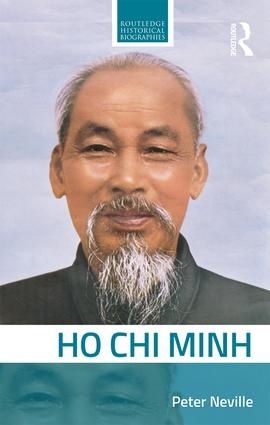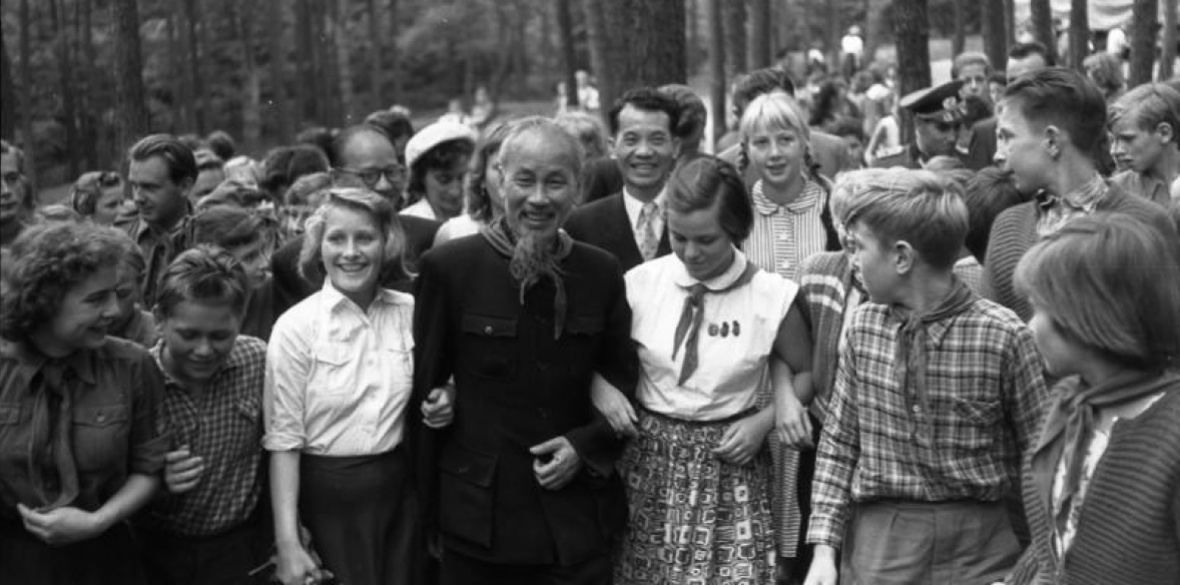This is the last article you can read this month
You can read more article this month
You can read more articles this month
Sorry your limit is up for this month
Reset on:
Please help support the Morning Star by subscribing here
Ho Chi Minh
by Peter Neville
(Routledge, £19.99)
HO CHI MINH — “Uncle Ho” — is still revered in Vietnam as the father of the nation because he guided the country, occupied in the 1940s and 1950s by France, through its tortuous and bloody struggle for independence.

He died in 1969 as the Tet offensive, leading to the defeat of the US and paving the way to true independence, was unleashed.
Peter Neville’s book — the first by a British scholar — offers a reasonably accurate historical chronology of Vietnam’s struggle during the 20th century and he places Ho at its centre. He was born in a small village in Annam in central Vietnam in 1890, where his family lived, eking out a bare existence as most other peasants did — they eked out.
His father, though, became self-educated and was a strong nationalist. Ho was an avid learner and became a school teacher, before working his way to France as an assistant chef on a French cruise ship and it was there that he became a convinced socialist.
He was at the founding congress of the French Communist Party and went on to work for the Comintern, becoming a friend of the renowned German Comintern representative Willi Munzenberg. Though he would have been very influenced by the League against Imperialism which the latter set up in 1927, this receives no mention in the book.
Ho’s early life had given him the ability to live on little, to endure hardship and undertake practical tasks himself. He knew first-hand how ordinary Vietnamese people lived and, throughout his life, his extreme modesty and almost ascetic rigour were legendary. He was imprisoned on several occasions and lucky to survive the ordeals.
When he returned to Vietnam in 1938, he was politically a changed man. From that point on he would lead the Vietnamese independence struggle and was widely recognised as a supremely clever tactician and strategist.
He endeavoured to forge a peaceful road to independence, leaning over backwards to accommodate French interests and attempting to gain British and later US support, all to no avail. McCarthyism was at its height in the post-war US and the cold-war hawk John Foster Dulles was secretary of state. He was petrified of a domino effect if Vietnam took the communist road.
Neville, utilising recently released government documents in the US, France and Britain, gives a good overview of events leading from colonial oppression to eventual liberation.
But his views are still sometimes tainted by a Western interpretation. Action by the Vietminh guerillas is, for instance, characterised as “ruthless” and “brutal,” whereas the mass bombing of Vietnamese civilians by the French and the US carpet-bombing and use of napalm — Neville does not mention Agent Orange — are endowed with no such adjectival qualifications, even though they were war crimes by any measure.
He does quote “the well-known British journalist William Burchett,” who met Ho in 1954 and described his simple peasant way of life which he maintained even as the de facto leader of the country. Being described as British, though, would cause the Australian communist writer to turn in his grave.
Neville’s book, a largely sympathetic portrait of a great leader, is a useful historical examination of this fascinating period during the dying years of unrestrained colonial and imperialist domination.











